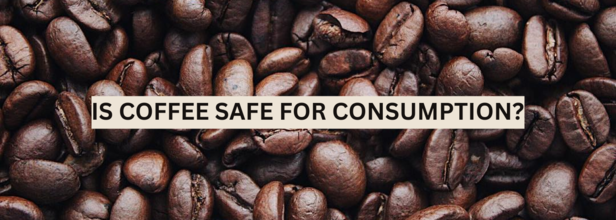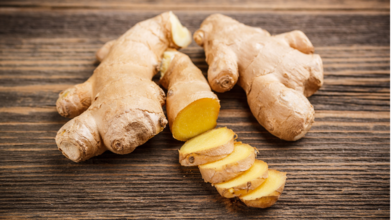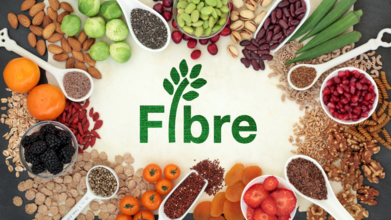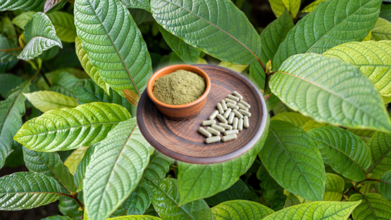- Health Conditions A-Z
- Health & Wellness
- Nutrition
- Fitness
- Health News
- Ayurveda
- Videos
- Medicine A-Z
- Parenting
- Web Stories
Coffee Is Harmful If You Swallow It, Says EU

Credits: Canva
Coffee. We all know its benefits, and by now we also know that it may not make everyone as active because of the coffee glitch. But could it be harmful? The European Union says so. But, why? Recently, the European Union or the EU has issued a warning that caffeine is "harmful to humans if swallowed". The EU under a ruling banned the use of the central component of coffee in pesticides.
the decision came from the European Commission, which is the executive arm of the economic bloc. This decision was in response to an application by a French company Progarein. Caffeine was used to ward off insects from crops of cabbages and potatoes.
Coffee is a daily essential for millions around the world, with Europe being the largest consumer market for the drink. But while caffeine is widely consumed in beverages, its potential use in agriculture has raised safety concerns.
The European Commission has officially banned caffeine as a pesticide, citing scientific evidence from the European Food Safety Authority (EFSA) on its risks to human health and the environment.
Health Risks Linked With Caffeine Exposure
According to the EFSA, caffeine can have several adverse effects, including:
Cardiovascular Issues – Caffeine can impact heart health, raising concerns for adults.
Nervous System Effects – It may contribute to sleep disturbances, anxiety, and behavioral changes in both adults and children.
Pregnancy Risks – Studies suggest caffeine exposure is linked to lower birth weight in newborns.
Unknown Non-Dietary Risks – The EFSA was unable to fully assess the effects of caffeine exposure on workers, bystanders, and nearby residents due to a lack of data.
Given these concerns, the commission concluded that caffeine could pose risks beyond dietary consumption when used in farming.
Environmental Concerns - Water Contamination
One of the key reasons for banning caffeine as a pesticide was its potential to contaminate water sources.
Drinking Water Safety – The EFSA found that caffeine levels from agricultural use would “significantly” exceed safe concentration limits in drinking water.
Surface Water Exposure – Large amounts of caffeine could end up in rivers and lakes, affecting ecosystems and aquatic life.
These findings reinforced the commission’s decision to prohibit its use in agriculture.
What Should You Know About Coffee?
Not always coffee is bad, in fact, a study published in the European Heart Journal by Dr Lu Qi, the lead researcher and director of Tulane University Obesity Research Center and team found that drinking coffee in the morning reduces the risk of heart diseases. The study also found that people who drank coffee in the morning had a lower risk of dying from cardiovascular disease and a lower mortality risk than all-day coffee consumers.
The Coffee Glitch: While many people also choose coffee over any other beverage to make themselves active and get them through the Monday blues, it does not work on everyone. Dr Karan Rajan, gastrointestinal surgeon, author, and lecturer who posts health content on his Instagram channel @drkaranrajan talks about coffee and the glitch it causes to some people, which is why they feel tired.
The way your body responds to caffeine depends on a type of liver enzyme called CYP1A2. This enzyme affects how sensitive your body is to caffeine. The doctor says, "depending on your metabolism, it could take between two to eight hours to remove half of the caffeine" you have drunk from your system. This is important because caffeine blocks the adenosine receptors, these are the hormones that tells us when we are sleeping.
However, if you metabolize coffee faster, your receptors will be unblocked sooner and you will feel tired.
Drug Expert Says More Brits Should Consume Ginger Either In Meals Or As A Supplement

Move over turmeric milk and celery juice, because ginger is the real spice. A zesty little root with serious street cred in both grandmas’ home remedies and actual medical journals, ginger is now being championed by health experts as a must-have on your plate or in your supplement stash.
According to Dipa Kamdar, senior lecturer in Pharmacy Practice at Kingston University, the benefits of ginger aren’t just old wives’ tales. In fact, she believes more Brits should seriously consider working it into their diets, either through meals or as a supplement. But why? Read on...
The Root to Relieving Nausea
Feeling queasy? Ginger might be your gut’s saviour. Clinical trials have consistently found that ginger can help ease nausea and vomiting. It’s been shown to soothe pregnancy-related nausea, with small doses considered both safe and effective for expectant mums. The NHS even recommends ginger tea or ginger biscuits to help with the queasies.Kamdar points out that ginger seems to work by targeting both the gut and the brain, possibly by blocking serotonin receptors and cutting down on gas and bloating. Some studies even suggest ginger could help with chemo-induced nausea, though the jury’s still out on its impact on motion sickness and post-surgery nausea.
The Anti-Inflammatory Powerhouse
Beyond tummy troubles, ginger’s bioactive compounds namely gingerol and shogaol, give it serious anti-inflammatory and antioxidant muscle. One recent study found that daily ginger supplements reduced the activity of neutrophils, those overly enthusiastic white blood cells that play a role in autoimmune diseases like lupus and rheumatoid arthritis.Kamdar says that while it’s not clear if fresh ginger or tea provides the same effect, the findings offer hope for people looking for natural inflammation control. Plus, ginger’s antimicrobial abilities make it a popular go-to for tackling sore throats and flu symptoms.
Ginger vs Pain
If you’ve ever hobbled around after a gym session or curled up with a hot water bottle during your period, ginger could be a game changer. Some studies suggest it can reduce muscle soreness and menstrual cramps and in some cases, its effect may rival over-the-counter painkillers like ibuprofen.Kamdar explains that this could be due to ginger’s ability to switch off certain inflammatory pathways and mess with pain-signalling chemicals like prostaglandins. It’s not magic, but it might just make those “ow” moments a bit more bearable.
Heart, Sugar and Everything Nice
Ginger might not look like much, but it’s got a lot going on when it comes to heart health. Clinical reviews suggest that ginger supplements can help lower bad cholesterol (LDL), raise good cholesterol (HDL), and reduce blood pressure.And if you’re keeping an eye on your blood sugar, especially with type 2 diabetes, ginger may offer additional perks. Kamdar says that studies have shown improvements in insulin sensitivity and blood sugar control, thanks to ginger’s ability to reduce oxidative stress and boost glucose uptake in cells.
There’s even emerging evidence linking ginger to better sexual health, at least in animal studies. It’s long been used as an aphrodisiac in traditional medicine, and while we don’t have enough human data to make promises, the combination of better circulation, hormone support, and blood sugar balance could play a quiet but crucial role.
Brain Gains and Cancer Clues
Ginger’s benefits don’t stop at the neck. Early lab-based research suggests it could have neuroprotective effects, helping guard brain cells against the oxidative damage associated with Alzheimer’s and other degenerative diseases. There are also test-tube findings hinting that ginger may slow the growth of certain cancer cells.Of course, Kamdar reminds us that this research is still in its early days. We're not saying ginger cures cancer or dementia, but it’s certainly pointing us toward exciting possibilities.
Don’t Go Overboard with the Root
As with any health trend, moderation is key. While ginger in your meals or a cuppa is generally safe, high doses (more than four grams a day) might leave you dealing with heartburn, diarrhoea or mouth irritation. And some people, especially those on blood thinners or medications for diabetes or high blood pressure, should tread carefully.Kamdar recommends chatting with a healthcare professional before jumping on the supplement train, especially if you're pregnant or on regular medication.
How Your Body Reacts When You Don't Eat Enough Fiber In Your Daily Diet?

Credits: Health and me
Protein gets the hype. Fat has made a comeback. Carbs? Constantly debated. When it comes to fiber, the unglamorous, often overlooked component of a healthy diet—is quietly holding the key to several of your body’s essential functions. When you don’t get enough of it, things start to go wrong—slowly, silently, and sometimes dangerously.
Over 90% of American adults and children don’t consume the recommended daily intake of fiber, according to a study in The Journal of Nutrition. That gap is more than just a dietary shortfall it’s a threat to your digestion, heart, metabolism, immunity, and long-term well-being.
Fiber is a type of carbohydrate that your body can’t digest. Unlike other carbs that break down into sugar, fiber passes through your system mostly intact. It comes in two forms:
Soluble fiber, which dissolves in water and forms a gel-like substance in your gut. This slows digestion, stabilizes blood sugar, and traps cholesterol.
Insoluble fiber, which bulks up your stool and helps food move smoothly through your digestive tract.
Both are crucial and both are found naturally in fruits, vegetables, legumes, whole grains, nuts, and seeds. That’s important because the fiber added to processed foods known as “isolated fiber”, doesn’t work the same way.
Sure, it may help with basic regularity, but isolated fiber lacks the antioxidants, phytonutrients, and anti-inflammatory compounds that come naturally packed in whole plant foods.
When Fiber Is Missing, Your Gut Knows First
One of the most obvious signs you’re not getting enough fiber? You’re not pooping regularly. Constipation—defined as having fewer than three bowel movements a week—can often be traced to low fiber intake.
Without enough insoluble fiber, your stool lacks bulk. And without that bulk, your intestines struggle to move waste through efficiently. That can leave you bloated, sluggish, and uncomfortable.
The solution isn’t just to add more fiber overnight—doing so too quickly can backfire, leading to gas and cramping. Instead, increase it gradually and drink plenty of water to help the fiber do its job effectively.
Skipping Fiber Can Strain Your Heart
Fiber isn’t just about digestion—it’s also about protecting your heart. Soluble fiber, found in foods like oats, flaxseeds, and apples, plays a direct role in lowering LDL (bad) cholesterol by capturing it in your gut and escorting it out through your waste.
In a large-scale European study published in the European Journal of Clinical Nutrition, people who consumed at least 27.5 grams of fiber daily had a 20% lower risk of dying from heart disease than those who ate 17.5 grams or less.
That’s not surprising. Diets rich in fiber tend to replace processed foods high in saturated fat and added sugar—the very culprits behind rising cholesterol and heart disease risk.
Your Blood Sugar Becomes a Rollercoaster
Eating mostly refined carbs—think white bread, pasta, and sugary snacks—can send your blood sugar spiking and crashing. Without fiber to slow the breakdown of carbs into glucose, you’re left riding an energy rollercoaster that fuels cravings, fatigue, and mood swings.
Soluble fiber slows the absorption of sugar into your bloodstream, creating a more stable energy curve. This isn’t just helpful for people managing diabetes—it’s beneficial for anyone looking to maintain steady energy and avoid the crash that comes after a sugar high.
Over time, a low-fiber, high-sugar diet can lead to insulin resistance and, eventually, type 2 diabetes. And it all starts with how you build your plate.
Fiber Fuels the Immune System
Here’s where it gets even more interesting: fiber doesn’t just feed you—it feeds your gut bacteria, which play a critical role in immunity. A fiber-rich diet helps beneficial bacteria flourish, producing short-chain fatty acids (SCFAs) that lower inflammation and support a healthy immune response.
When you lack fiber, your gut microbiome becomes imbalanced. The “good” bacteria starve, while less helpful microbes thrive. That can compromise your body’s ability to fight infections and may even increase your risk of certain cancers, like colorectal cancer.
Prebiotic fibers—found in onions, garlic, oats, bananas, asparagus, and apples—are especially important for keeping your gut flora healthy and diverse.
A Fiber Deficit Can Fuel Weight Gain
Another underappreciated benefit of fiber? It helps you feel full, naturally and without added calories. That’s because fiber slows digestion, which prolongs satiety and reduces the urge to snack mindlessly.
When your diet is heavy in refined carbs and low in fiber, your body digests food quickly and sends out hunger signals sooner. That makes it harder to manage portion sizes and cravings, especially for sugary and fatty foods.
Plus, because fiber isn’t digested, it technically has zero calories. So foods high in fiber—like lentils, vegetables, whole grains, and fruits—deliver fewer calories than they appear to, helping support weight management.
In contrast, ultra-processed foods low in fiber are directly linked to rising obesity rates, as highlighted in a 2019 review in Obesity and Nutrition. Countries that eat more whole foods and less processed junk, like those in the Blue Zones, consistently report better health outcomes and longer lifespans.
A common mistake? Thinking that any food with “fiber” on the label is automatically healthy. Many processed foods—like high-protein snack bars, fortified cereals, and fiber-added yogurts contain isolated fibers such as inulin, wheat dextrin, or chicory root extract.
These may help with feeling full or going to the bathroom, but they don’t offer the same cardiovascular, metabolic, or immune benefits as naturally occurring fiber in whole foods. The Journal of the Academy of Nutrition and Dietetics confirms that these added fibers don’t improve cholesterol or blood sugar regulation the way whole food fibers do.
So yes, you might check off your fiber quota with a processed product—but your body won’t reap the same rewards.
Fiber isn’t a “nice to have” nutrient, it’s a daily essential. It impacts how your body digests food, manages blood sugar, protects your heart, balances weight, supports your immune system, and even prevents disease. Yet most people simply aren’t getting enough.
If you take one thing away from this: focus on real, whole foods. That means loading up on vegetables, fruits, legumes, nuts, seeds, and whole grains not relying on fiber-fortified processed snacks to do the heavy lifting.
Start small, add berries to your breakfast, swap white rice for quinoa, toss beans into salads, or snack on a handful of almonds. Your body and your future health will thank you.
Fact Check: Is Kratom Supplement A 'Natural' Healer Or An 'Addictive' Danger?

Credits: Health and me
At first glance, kratom seems like just another herbal supplement tucked away on the shelves of gas stations, smoke shops, and internet wellness stores. It’s marketed as a natural remedy a “safer” alternative to opioids, a tool for pain relief, anxiety, or even a way to ease opioid withdrawal but beneath its green-powdered facade lies a far more complex and controversial story. One that’s increasingly raising red flags among addiction specialists, federal regulators and grieving families.
Kratom, a plant native to Southeast Asia, has quietly sparked one of the most polarizing debates in modern health policy. Touted by some as a natural remedy for chronic pain, anxiety, and even opioid withdrawal, it’s also flagged by regulators for its potential for addiction and serious side effects. In the US, kratom sits in a legal gray zone—sold openly in some states while banned in others. So, is it a botanical ally or a public health risk waiting to explode? The answer isn’t simple. And that’s exactly why the kratom controversy refuses to die down
Let’s understand what kratom actually is, why it’s so widely used, and the growing public health concerns surrounding this seemingly harmless herb.
What Is Kratom?
Kratom (scientific name: Mitragyna speciosa) is a tropical tree native to Southeast Asia and a cousin of the coffee plant. For centuries, people in countries like Thailand and Malaysia have used its leaves to relieve pain, enhance stamina during hard labor, treat diarrhea, and manage opioid withdrawal symptoms.
In small doses, kratom can act like a stimulant, offering increased energy and alertness. In larger doses, it mimics the sedating effects of opioids — bringing feelings of euphoria, drowsiness, and even pain relief. This is largely due to two potent alkaloids found in the plant: mitragynine and 7-hydroxymitragynine (7-OH), which bind to the same opioid receptors in the brain that drugs like heroin and oxycodone target.
That dual effect stimulating in low doses, sedative in high makes kratom especially unpredictable and risky.
Is Kratom Part Of The Growing Wellness Trend Fueled by Misinformation?
The U.S. wellness industry is booming, estimated at a staggering $6.3 trillion globally. Kratom has ridden that wave, appearing in TikTok videos, Reddit forums, and online stores — often labeled innocuously for “aromatherapy” or “soap making” to bypass federal import restrictions.
Many users claim it has helped them manage chronic pain, anxiety, or break away from more dangerous opioids. But here's the problem: the kratom market is almost completely unregulated. Unlike over-the-counter medications or prescription drugs, kratom products don’t go through rigorous safety testing. There are no standards for purity, dosage, or labeling.
That means you could be swallowing a product that varies wildly in potency from batch to batch — or worse, one laced with contaminants like heavy metals, bacteria, or even other synthetic drugs.
Why Are FDA and DEA Are Paying Attention Now?
In 2014, the FDA officially banned the import of kratom as a dietary supplement. Since then, kratom products sold in the U.S. have been operating in a legal gray zone — accessible but unapproved, often sold with vague labels and misleading health claims.
In 2018, the FDA issued a massive recall due to Salmonella contamination in kratom supplements. More recently, the agency has set its sights on 7-hydroxymitragynine (7-OH), the compound considered most responsible for kratom’s opioid-like effects.
The DEA has added kratom to its Drugs and Chemicals of Concern list but has stopped short of scheduling it as a controlled substance. For now, kratom remains legal in most U.S. states, though some — including Indiana, Alabama, and Wisconsin — have enacted their own bans.
What Happens To Your Body When You Take Kratom Supplement?
The effects of kratom usually kick in within 5 to 15 minutes of ingestion and can last up to 5 hours, depending on the dose. Most users take it in powder form, brewed into tea, or swallowed in capsules — often mixed with sweeteners to offset its bitter taste. Common short-term effects include:
- Dry mouth
- Nausea
- Drowsiness
- Elevated blood pressure
- Constipation
More severe reactions have been reported, including seizures, hallucinations, respiratory depression, and cardiac arrhythmia — especially at high doses or when combined with other substances. The American Addiction Centers warns that frequent kratom use can lead to dependency, and the DEA has even cited cases of psychosis tied to chronic use.
Can You Get Addicted to Kratom Supplement?
Absolutely and many users don’t realize they’re at risk until it’s too late. A recent study showed that 12.3% of kratom users met the criteria for addiction. Some end up requiring the same treatments used for opioid use disorder, such as suboxone (buprenorphine). Others experience milder withdrawal symptoms like anxiety, tremors, and insomnia akin to caffeine withdrawal.
But for some, the consequences are much more serious. Take the case of Jordan McKibban, a young man who died in 2022 after mixing kratom into a drink. His mother, Pam, is now publicly advocating for better awareness and regulation. “I’ve lost my son. I’ve lost the future I imagined with him. He shouldn’t be in a cemetery,” she said in an emotional interview.
Is Kratom Dangerous or Helpful?
That depends on who you ask. Proponents argue that kratom is a life-saving alternative for those trying to manage pain or escape opioid addiction especially in a healthcare system where many feel abandoned or stigmatized. Some researchers even believe 7-OH may carry fewer respiratory risks than traditional opioids, though that claim needs more data.
Jeff Smith, policy director at the Holistic Alternative Recovery Trust (HART), argues that banning kratom outright would hurt the very people it's helping, “Cutting off access helps no one, but it will hurt many,” he said.
Critics counter that until kratom is studied and regulated more rigorously, it’s a ticking time bomb — especially when it’s available to anyone with a credit card and Wi-Fi.
Kratom is not just a “natural herb”, it’s a psychoactive substance with powerful effects on the brain and body. While it may offer genuine benefits to some users, its risks are real, especially in a market with no regulation, quality control, or medical oversight.
If you're considering kratom whether for pain, anxiety, or opioid withdrawal, talk to a doctor. Don't assume “herbal” means safe. In the meantime, as the FDA and DEA weigh tighter restrictions on kratom, the spotlight is only growing brighter on an industry that’s long operated in the shadows.
© 2024 Bennett, Coleman & Company Limited

